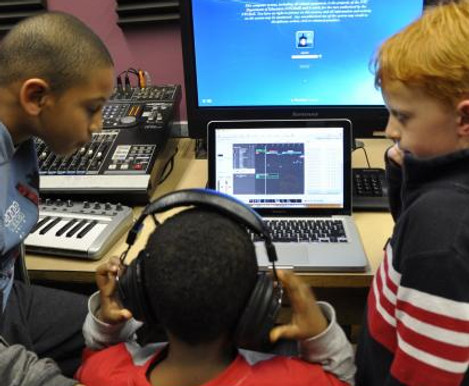Music Production Lessons In Canberra


Music production lessons are designed to teach students how to create, record, edit, mix and master their own songs using a digital audio workstation (DAW) software. The lessons are tailored to the individual needs and goals of each student, and can be done online or in person. Students must have their own laptop and DAW software. I can assist in installing the software. The lessons cover topics such as:
- MIDI programming and editing
- Recording vocals and live instruments
- Creating beats and arrangements
- Mixing techniques and tools
- Mastering techniques and tools
- Ear training and music theory (More in-depth lessons are available)
The aim of the lessons is to help students develop the skills and confidence to produce professional sounding music in any genre and style they choose.
About Music Production Lessons
Duration
30-60mins depending on what the student wants to achieve and their level. Has an option to be virtual.
Cancellation of Lesson
If for any reason a student is unable to attend their scheduled Theory lesson, we kindly request a minimum of 24 hours notice. This allows us to offer the time slot to another student. Thank you for your understanding and cooperation.
Pre-requisite Equipment
Students must have their own laptop, and installed DAW (Digital Audio Workstation). I can of course help them to install the DAW software as part of their lessons and get them set up with some general navigation around the user interface of the tool as their introduction lesson.
Where We Start
For a beginner student the standard starting point is to learn the basics of their DAW
How to navigate inside the DAW
Learn and understand MIDI (Musical Instrument Digital Interface) - MIDI controls synthesisers and instruments inside the DAW - MIDI can be performed into the DAW via a MIDI Keyboard connected via USB or by manually programming it into the ‘Piano Roll’ inside the DAW.
The student will then learn how to record and capture ‘Real’ audio like vocals and live instruments
Mixing Techniques
Once these fundamentals have been achieved the student is then introduced to basic mixing techniques of sound (audio engineering) and begins to work with tools such as Compressors, EQ’s, Reverbs and Delays etc. Mixing is the manipulation of the individual layers of a song to make them sound more pleasing and to make the layers of the song combine well to create a better, polished and more professional sounding song.
Aural And Theory Training Components
Ear training (aural training) becomes a component of production as well as basic music theory. Ear training is essential so that the student develops the critical listening skills in order to be able to break down the sonics of individual tracks/layers and songs as a whole. This enables effective mixing and song writing techniques. Basic music theory is also essential in order for the student to create good compositions by understanding how different voices or instruments work to make well put together arrangements. Song Writing and Music Theory is fun and easy!
Lesson Frequency
Lesson frequency is usually once per week but can be increased depending on student needs.
Payments for Lessons
You can choose to pay for the term in advance or pay weekly. Whatever works best for you, we're happy to accommodate. Contact us to learn more about our payment options.
Instruction Based On Level
Then I would start to teach them how to apply music principles in conjunction with music production (audio engineering) principles into the DAW software. Where they start, will ultimately depend on their previous knowledge of music and audio engineering. I assess this as part of our time together in the first lesson and work to tailor my lessons from there.
Next Steps
Once these recording techniques are down pat the student learns how to edit the MIDI and ‘real’ audio once it has been captured/programmed/recorded.
From here the student can learn how to create basic beats and to layer instruments and musical parts (formerly known as musical arrangement)
Advanced Mixing And Mastering
From here the student can dive into advanced mixing and mastering techniques so as to maximise the sound of their songs resulting in professional sounding mixes. The difference between mixing and mastering is that mixing applies to the individual components of a song (eg: how loud is the vocal and what effects are on in it and how does it sound with the bass guitar?) whereas mastering applies to the sonics (sound frequencies) of a song as a whole (eg: is there enough bass in the song to sound good in the car and can you hear the vocal well enough in comparison to the snare drum etc).